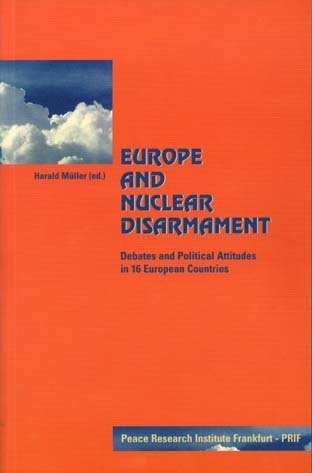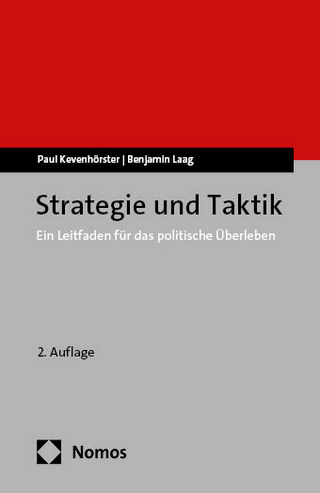
Europe and Nuclear Disarmament
European Interuniversity Press (Verlag)
978-90-5201-702-0 (ISBN)
- Titel ist leider vergriffen;
keine Neuauflage - Artikel merken
The Editor: Harald Müller is the Director of Peace Research Instiute Frankfurt (PRIF) and Director of PRIF's Nonproliferation Programme. He is Associate Professor at the Technical University Darmstadt and Visiting Professor at the John Hopkins University Bologna Center, Italy.
Contents: Harald Müller: Preface - Harald Müller: Introduction - Camille Grand: France - Darryl Howlett/John Simpson: The United Kingdom - Alexander Kelle: Germany - Quentin Michel: Belgium - Marianne van Leeuwen: The Netherlands - Vicente Garrido Rebolledo: Spain - Thanos Dokos/Panayotis Tsakonas: Greece - Mustafa Kibaroglu: Turkey - M. Cristina Zadra: Italy - Stephan Klement: Austria - Erzsébet N. Rózsa: Hungary - Genowefa Smagala: Poland - Jirí Sedivy: The Czech Republic - Radoslava Stefanova: Bulgaria - Lars van Dassen: Sweden - Rolf Tamnes/Astrid Forland: Norway.
| Erscheint lt. Verlag | 1.5.1999 |
|---|---|
| Reihe/Serie | Cité européenne / European Policy ; 14 |
| Cité européenne / European Policy ; 14 | European Policy ; 14 |
| Sprache | englisch |
| Gewicht | 420 g |
| Themenwelt | Recht / Steuern ► Allgemeines / Lexika |
| Sozialwissenschaften ► Politik / Verwaltung ► Allgemeines / Lexika | |
| Sozialwissenschaften ► Politik / Verwaltung ► Politische Systeme | |
| Sozialwissenschaften ► Politik / Verwaltung ► Staat / Verwaltung | |
| ISBN-10 | 90-5201-702-6 / 9052017026 |
| ISBN-13 | 978-90-5201-702-0 / 9789052017020 |
| Zustand | Neuware |
| Haben Sie eine Frage zum Produkt? |
aus dem Bereich


